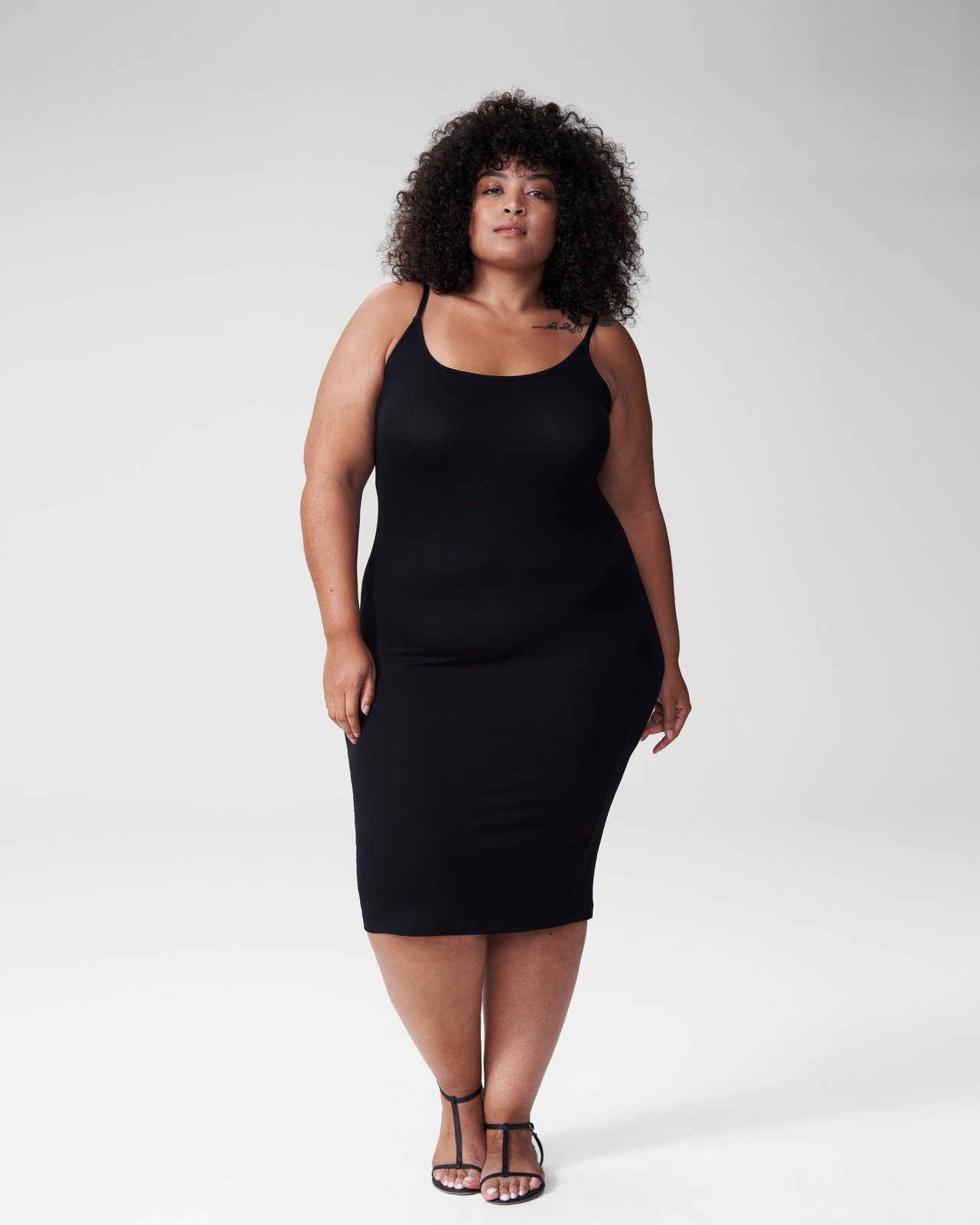
How do we define ethical fashion? Is the very term an oxy-moron? Is there a way to participate in the fast-paced and ever-evolving world of fashion ethically? I think all of this is up for debate, but what’s abundantly clear is that our fashion choices—or lack thereof—have consequences.
For lots of folks, the chasm between understanding that there’s a fast-fashion problem and being able to take the steps to change habits around clothing consumption can be vast indeed and understandably so. Limited resources of time, energy, and money can make so-called ethical fashion financially out of reach. Limited availability of size-inclusive options can shut out would-be customers. Homogeneity of brands in terms of style, representation, and leadership can feel exclusive and unwelcoming. Cultural expectations around dress and style loom large and all of this adds up to a whole lot pressure.
In today’s post, blogger Deb Shepherd shares a bit of her own journey with ethical shopping as well as her personal list of favorite starter-brands for newbie ethical fashion enthusiasts.
Here’s more from Deb:
One suitcase, one box, and a life-changing move to the middle of nowhere was the beginning of my minimalism fashion journey. But before that? I was a train wreck, though you could never tell by looking at me. My shopping addiction bought me a cheap but “stylish” facade. Shopping was a coping mechanism that gave me a temporary dopamine fix and the illusion that everything was okay. Dressed in a new outfit I felt officially over my breakup or recovered from a work setback. As I stuffed my closet with more clothes, the last thing I thought about was ethics of garment workers or how my $7 button-up impacted the environment.
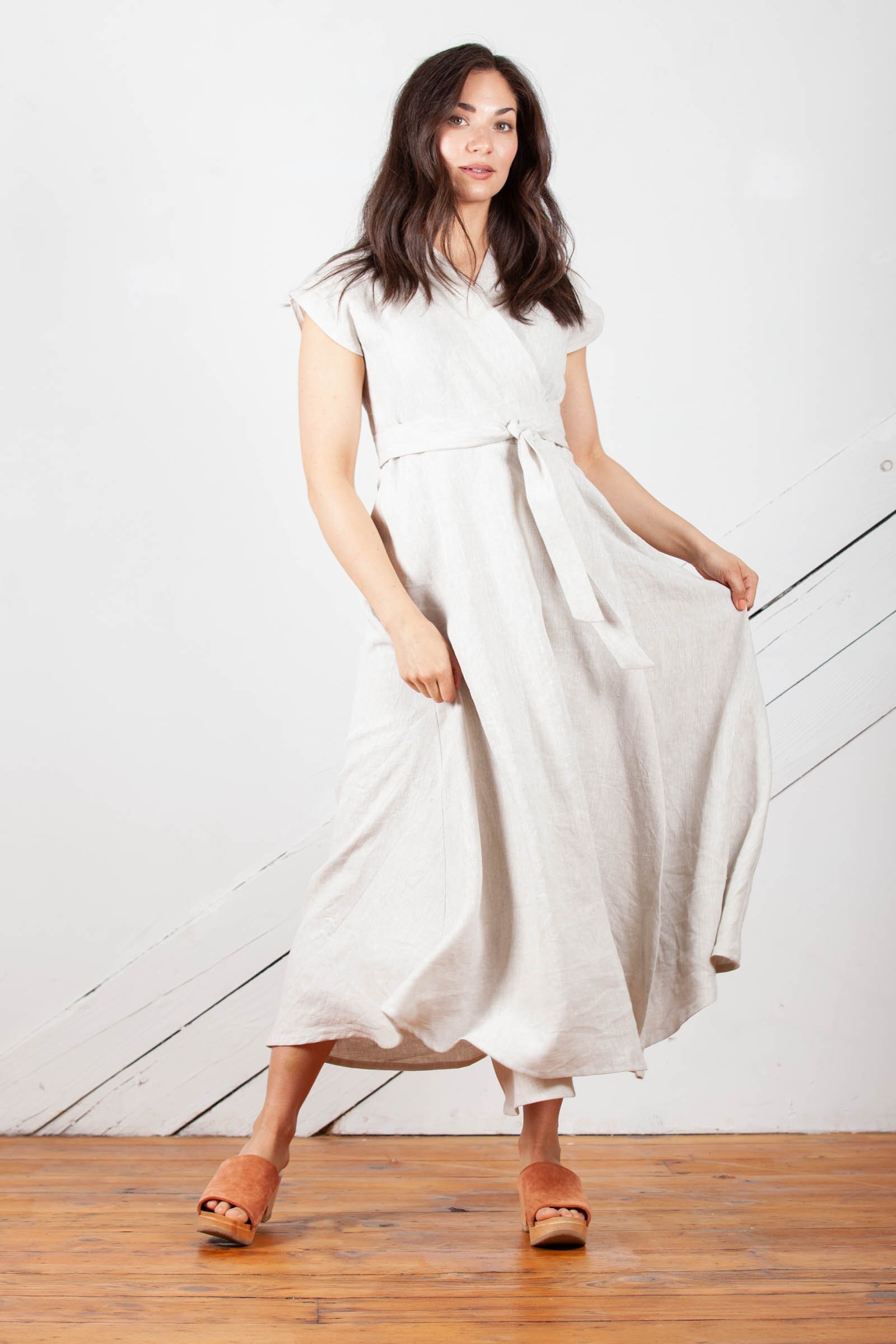
Learning more about minimalism and defining my consumer values, I started researching ethical fashion and looking for brands that are striving for environmental sustainability from their fabrics down to their factories. More than environmental sustainability, I came to realize that for me ethical fashion is also defined by a brand’s commitment to being purpose-driven, whether that means being size-inclusive, having diverse and inclusive leadership and staff, paying their workers livable wages, supporting BIPOC designers, or, hopefully, all of the above.
What I’ve also come to realize is that shopping ethical and sustainable fashion brands is a privilege.
Two years ago, I landed a job that gave me the financial freedom to shop for new clothes that fell into my definition of ethical fashion. And even though I wear many of those clothes to this day, I still overspent. When I began documenting everything on my minimalism journey—from getting a studio apartment, to decluttering my closet, and building a capsule wardrobe—but it wasn’t long until I realized that I need to prioritize my finances. In searching for ethical fashion, I had rung up over $1,000 in credit card debt, leaving me anxious and depressed.
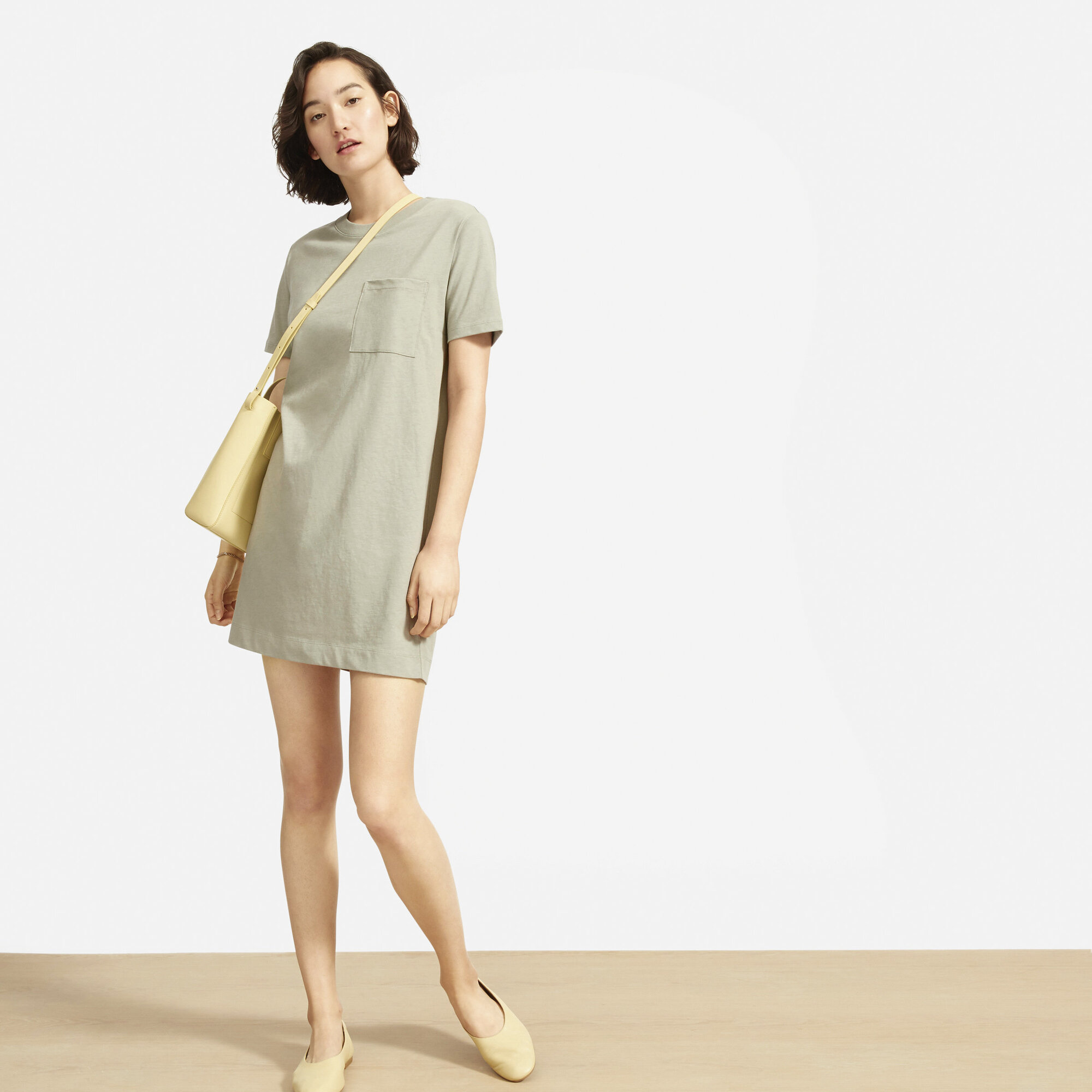
If you’re two seconds away from throwing your phone out your window, or driving to Zara, then stop what you’re doing and breathe. I understand how overwhelming it is just starting out. You’re told to declutter your entire life, redefine your values, and now you’re expected to invest $400 on a coverall jumpsuit. Even if it’s perfect and you’d wear it everyday, you don’t have to start out that way. In fact, I encourage you to shop slowly, shop secondhand, and save up for the special items that align with your values.
Shopping ethically doesn’t have to mean plunging yourself into debt. Erin wrote a piece last year about buying and selling secondhand sustainable fashion, and here’s my own complementary list of starter brands for ethical fashion enthusiasts who are just getting started:
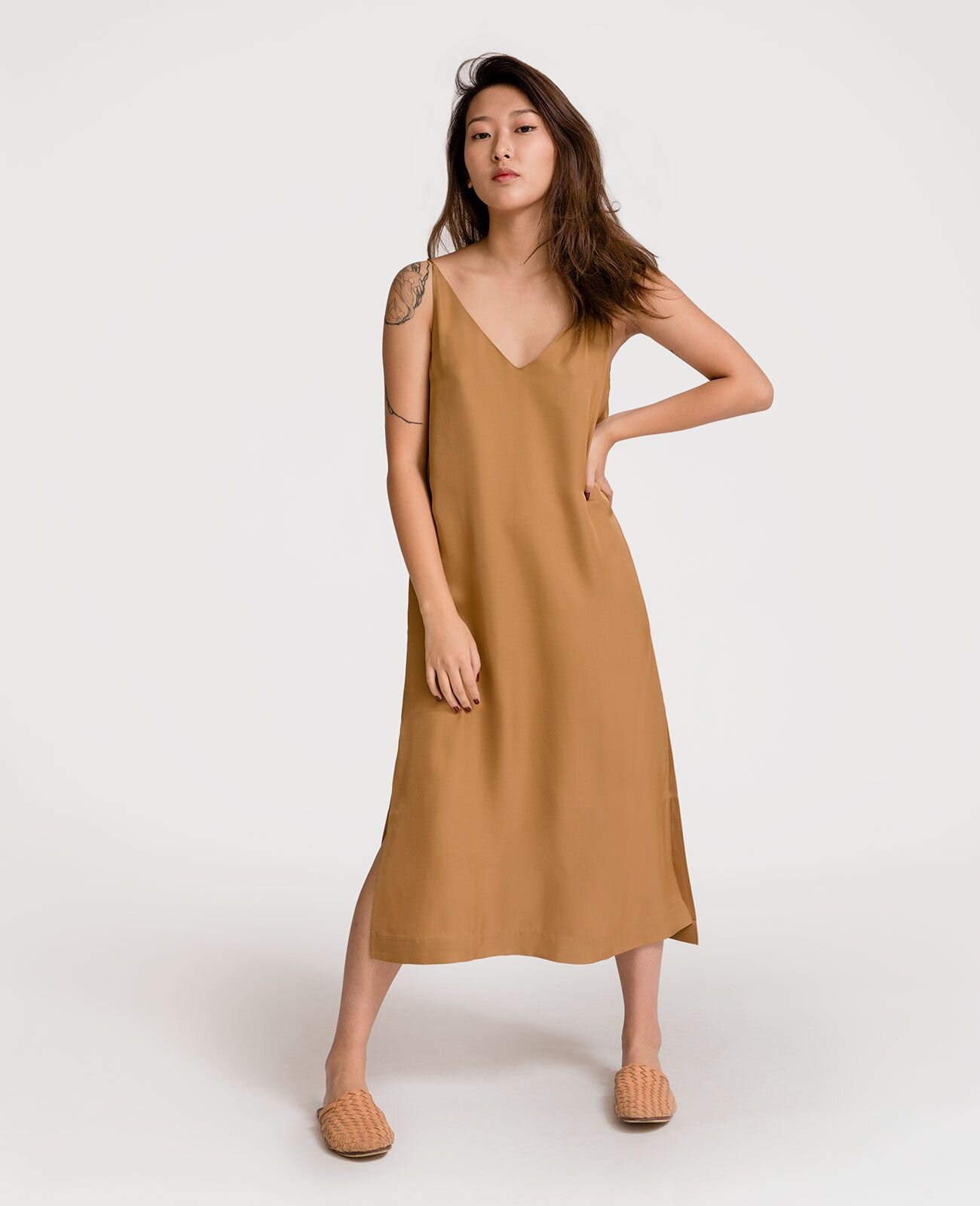
+ Grana: This brand is known for their very low (almost like fast-fashion) pricing and for delivering on garments made from high quality fabrics sourced from around the world. Their Peruvian Cotton V-neck shirt is currently on sale for $9, but keep in mind that discounted items are final sale. Regardless, this might be the best brand to at least try out if you’re on a very tight budget and want better materials in your wardrobe.
+ Only Child: A woman-run company based in Oakland, CA create versatile and simple pieces using four primary fabrics: wool, linen, cotton, and silk. Each order is handmade in their studio. The styles are minimalist and the structured silhouettes are understated and fuss-free. I really like how multi-functional the pieces are which makes investing in their clothes feel worth it.
+ Everlane: A minimalist, effortless, and largely neutral ethical fashion brand known for its transparency, high quality products and factories, and affordable price points. At Everlane you can even “choose what you pay” on clothing, shoes, and accessories that are on sale and they tell you the impact of the option you choose.
+ Hackwith Design: A Minnesota-based, made-when-ordered, feminine, and size-inclusive brand. I can’t share enough about how much I love Hackwith Design. Their pieces are size-inclusive and they have a huge selection that still holds that whimsical, draped, and multi-functional silhouette that looks good on every body type.
+ Amae.Co: This San Francisco-based brand is a one-woman-show run by Stacie Lucas who designs the most breathtaking, simple, and versatile pieces in warm rustic colors. I love her tee dresses and seeing how she styles them giving vacation vibes. They go up to a size 14 in her famous wide-leg pants and she is working on expanding sizes in the (hopefully near) future.
+ Universal Standard: This brand has hit multiple news headlines as a leading size-inclusive, racially diverse, and high-quality brand that amplifies realistic body types in their campaigns. I’ve never heard of another fashion brand, let alone an ethical fashion brand, with a size range from 00-40. They even just announced one of the biggest collaborations with Rodarte that includes makes luxury more accessible for all.
+ Matter Prints: A Singapore-based brand that honors textile heritage and supports rural artisans to make their work more sustainable. If you love pattern, ethnic prints, and you’re looking for specific traditional techniques, then I highly recommend checking out this brand.
Remember, you will never be 100% ethical, zero waste, or anything for that matter. Perfection doesn’t exist and isn’t possible. Making small changes in your wardrobe to support brands that genuinely care about their employees, help the environment, and that create clothes that help you feel your best is a starting place. Start where you are and intentionally take steps to building an ethical wardrobe. I’m here to cheer you on.
Deb Shepherd is a 25-year old writer, speaker, and owner of Clothed In Abundance, a minimalism, mental health, and money blog based in Seattle, Washington. She’s the founder of Broke Not Broken a clothing line and podcast that supports and uplifts mental health survivors through the power of storytelling. Follow her minimalism journey on Youtube, Instagram, and find out how to support her work.
This post includes affiliate links. Reading My Tea Leaves might earn a small commission on the goods purchased through those links.

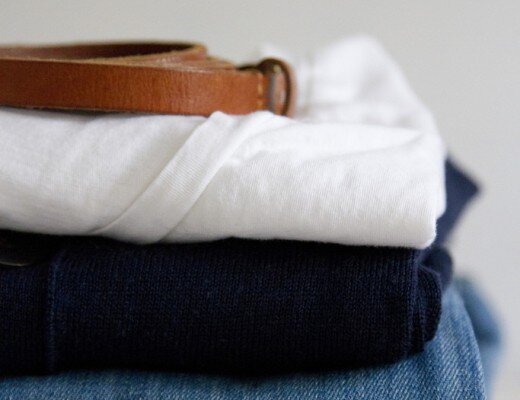
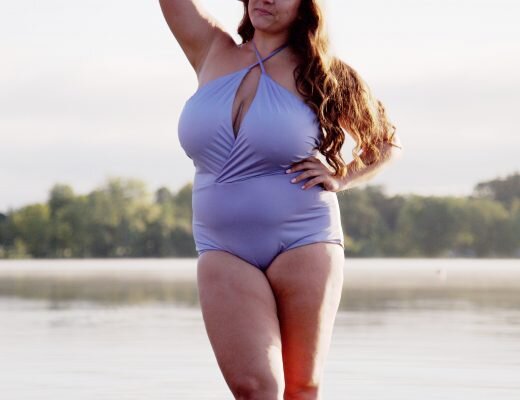

28 Comments
Such a great list! Amae is actually closing, so sad :(. But the good part is that what’s left in her shop is currently 50% off. Thanks for the recs!
I am so sad Amae is closing. I love her shop as well!
Kindly,
Deb
I would love to know your thoughts on Kotn. I have A LOT of trouble buying clothing online and there’s a Kotn location around the corner from me.
have you been able to head there in person? i don’t have a lot of experience with the brand but they seem to be up to some good, as far as i’ve read on their site! i bought james a pair of their sweatpants for christmas and he’s been pleased with the quality!
I’ve been in the store and it seems lovely! I’m definitely keeping them in mind for when I need to replace some basics. I was just curious if you had any insight about them. 🙂
I love Kotn products! My only knowledge of their ethical/environmental bona fides is from their website, but I can assure of you this: these are not one-season-and-toss T-shirts/dresses/etc. They are excellent quality, hold their shape and colour after repeated washes, and are really soft and comfortable.
Gonna chime in on this and say that I love Kotn! Their clothing is fabulous quality and they’re transparent and invested in all they people they work with, from farmers, to tailors to their in-store associates. Their sizing is a little small s I definitely recommend trying on in store.
Ahh…but work trousers? These are the bane of my ethical wardrobe plans! Not cropped, not skin-tight, not floor-sweepingly wide-legged…maybe with pockets. I’m convinced that if I could just find this elusive garment I could probably solve global warming all by myself! The search continues…
I haven’t checked recently but a while ago while looking for “office wardrobe staples” I saw that People Tree had a great trouser and blazer set. There are also larger brands with sustainability certifications like Eileen Fisher, and of course the gently-worn options on sites like ThredUp, the Real Real, and Poshmark.
Hi Reba,
I’ve been eyeing the Clyde Work Pants from Elizabeth Suzzann. They aren’t your traditional work pants but they offer a more tailored look in cotton canvas.
How “ethical” they are might depend on what you care about, but MM LaFleur is a woman-run company that makes great work clothes. Not cheap, but their items wear very well.
Am I the only one having trouble with the Grana website? I really want to check them out, but I can’t get their site to load. 🙁
hi there! it’s working where i am! maybe a hard refresh/cleared cache would do the trick?
I tried from a couple of different browsers (phone then desktop) without it working. About an hour later it did! Weird glitch. Thanks for the response!
I’m utterly gobsmacked at the thought of racking up $1,000 in credit card debt for clothing. I realize expectations and aspirations are generational, but personally I believe there are far more efficient and affordable ways of curating an “ethical” wardrobe, with resources left over to support other social and earth worthy pursuits.
i loved deb’s vulnerability in sharing this part of her story. as a culture we shame people so much for their debt and i think it’s so brave and helpful that deb offered her own experience as a cautionary tale.
Of course there are far more efficient and affordable ways of curating an ethical wardrobe. The woman featured in this makes that point herself – she says that racking that up left her not just in debt but also depressed and anxious. She literally says that shopping slowly is best, and directs readers to a previous post on shopping secondhand, before saying that if you are looking to buy something new at any point, the following recommendations are a complement to that first advice.
.
So much of what hits social media has a “buy this now!” vibe to it. I appreciate that this post is saying the opposite. Deb has experience getting caught up in “buy it now!” culture and she’s here to say that you can still curate an ethical wardrobe without doing that.
Yes! Thanks for your careful reading and thoughtfulness! This is precisely the message we were hoping to send.
Hi Stacy,
You and me both. Looking back, that was a horrible financial mistake that turned into the most beautiful lesson. Of course, my credit card debt wasn’t entirely clothes but you’re right. I’ve learned my lesson and that’s exactly what I blo g about. Thanks for clairifying that Erin!
xx,
Deb
It’s rare that I get to be proud of my country but so proud Matter Prints is on that list as a Singaporean!
I’m surprised that the writer didn’t talk about using what we have already. This is the MOST sustainable option. We don’t need “new” things all the time. Try to rediscover what is ALREADY in your closet and use those products until their end of life rather than throwing it all away and “starting from scratch”. THIS is the most ethical option. It is so easy in the sustainable fashion and minimalist lifestyle trend to buy things that are “ethically made”, even before you have an actual need for it. I really like reading about Cait Flander’s year of buying absolutely nothing (except for essentials like groceries and toilet paper) https://caitflanders.com/the-year-of-less/ and I think while this is extreme, we need to start using what we have, even it if isn’t “ethically made”. There is so much consumerism already in the sustainable / minimalist world, it seems so counterintuitive.
you’re right of course. no doubt deb would agree. for this piece, deb pitched a story about the brands that she does patronize and that she’s had good luck with when buying new, but much of her writing focuses on just this kind of creativity and even abstinence!
I will definitely check out Deb’s website to read more of that! Erin, I would also love to hear your perspective on this in a blog post (maybe I missed one already?) I know you have a one-in, one-out policy in your tiny apartment, I just wonder how you manage your wants vs needs!
Thanks 🙂
i really appreciate this post, and hope the following question is constructive: i would love an explanation of how everlane supports environmental sustainability in a real way. i’m not convinced of their environmental impact at all despite their use of recycled polyester and minimal packaging (all of which is great, but seems to barely scrape the surface..?). however, with all their goods being produced overseas (they didn’t used to be) and little said of their actual green/sustainable practices on their site, i’ve begun to feel a little uncertain going to them for environment-minded fashion, especially when i hold them up against brands like hackwith design. i realize this post is about accessibility and ethical brands as well, and i appreciate everlane’s good work in those areas. i guess i’m asking just for myself.
hi there: a few things! the first is that i think all of this is so hard and i don’t think we have super easy answers. (not to dive off the deep-end totally, but the crux of the issue is probably that participating in capitalism ethically is complicated, maybe even impossible!) we rely largely on brands themselves for transparency around environmental practices. everlane rose to popularity in part due to their positioning of themselves as a transparent company—giving insight into pricing, factory conditions, and fabrics (in addition to recycled polyester and reduced reliance on plastic packaging, they also seem to have made interesting strides in denim and silk sustainability, but they’re not innovating yet in terms of organic fibers, like cotton, or large-scale renewable fibers like hemp and linen, so there’s abundant room for improvement to be sure). it’s difficult to track or understand how they (and most brands) stack up on all things ethical. in terms of overseas production, i’ve done a lot of reading about this over the years and while i support and champion US-made clothes, too, i’ve also become more aware of the ways that this isn’t really an accurate measure of sustainability, working conditions, or ethics broadly. sadly, i know of several brands that moved away from american production because of unsavory working conditions, poor quality, and lack of innovation. absolutely not saying that ethical american production isn’t possible, but i increasingly think that whether or not something is produced in the us isn’t the most responsible measure of sustainability. finally (phew!): the accessibility question is the big one here! i’m sure you can imagine that i receive an enormous number of notes from folks looking for affordable alternatives to the brands that i love and post about often. they’re hard to come by, and while not perfect, everlane is broadly more affordable than most while also taking some important strides in the right direction.
i love this thorough response! thank you. it is hard not to ask everything of the brands who ARE dipping a toe (or more) into sustainable practices, and your thoughts on overseas production speak to that. patience and research are important. i also wholeheartedly agree that capitalism itself is quite ethically flawed, and for that reason, i want to reiterate my support for this post highlighting the more accessible end of sustainable brands. i love that more and more people want to become better at buying fashion.
if anything, our small conversation shows that these things are simply too complex and multi-layered to address in one brand, let alone cover in one post or comment response! which in and of itself is worthwhile to learn. many many thanks for this and all your work in this area.
Many eco-conscious consumers give up on sustainable living simply because they cannot afford it. Thankfully, secondhand stores and thrift shops help in minimizing clothing consumption. However, they do not promise longevity or top-notch quality of the clothes they sell. These brands offer an affordable alternative. Thanks for sharing!
I love the Hackwith Design but sadly their pieces don’t look good on me. 🙁
I have had good luck with SKYE (https://shop-skye.com) and Waltz Studios (http://waltzstudio.com), which are both SF-based and use quality, sustainable fabrics.
Comments are moderated.